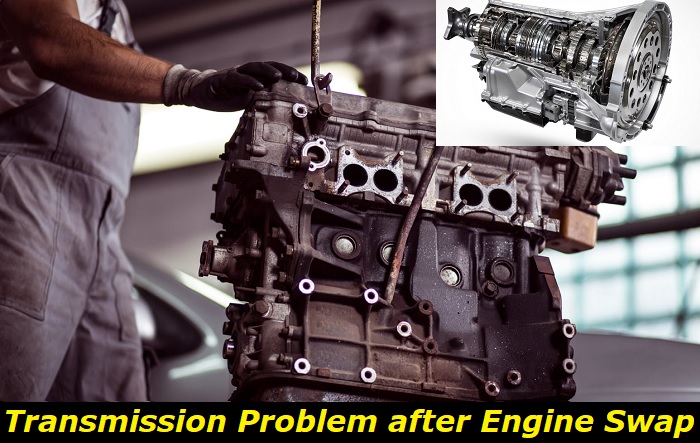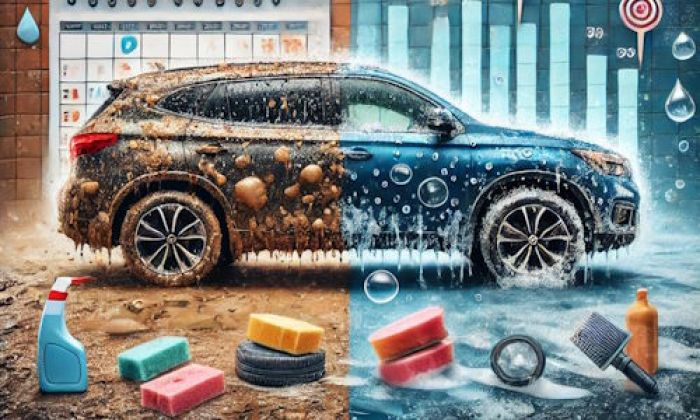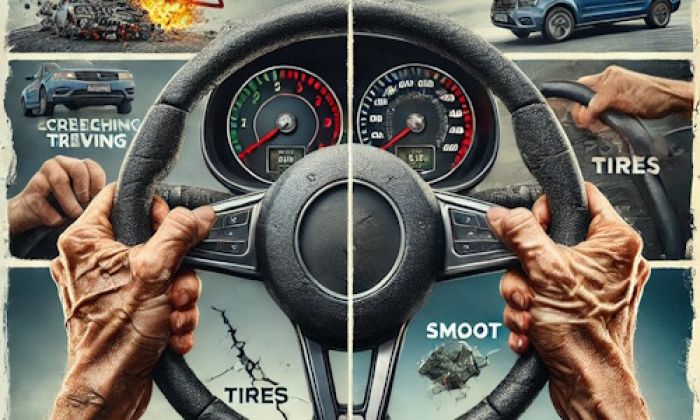Your vehicle is not going to be healthy forever. There will be a time when your car will demand very expensive repair and you basically will have two possible solutions: selling it to a scrapyard or salvage auction or just rebuilding it and investing some money. Usually, the most expensive units in your car are the engine and transmission. When they go bad, the repair is not always economically wise.
Gearbox issues after engine swap highlights
- Level of importance:High
- Reasons:Incorrect installation, need for reset
- Needed expertise:High
- Needed tools:Professional tools set
- Time taken:3-7 hours
- Can you drive? Usually, no.
- Possible issues: No shifting, limp mode, strange sounds, error messages and warnings on dash.

Agreeing to pay for an engine swap? Why can you do that?
While in some other countries, people tend to drive their vehicles until they are completely undrivable, Americans love changing cars quite often. So, the engine swap situation becomes really rare in repair shops. Most engine swaps happen when the vehicle is still under warranty and the manufacturer pays for this procedure.
Otherwise, the engine swap is too expensive. You have to find a new, rebuilt, remanufactured, or just used engine, some other parts, buy all fluids, belts, chains, bearings, filters, whatever. And you have to pay for labor, too. Well, it seems like a lot of money.
But here's what can make you pay this money:
- if your vehicle is still pretty fresh but the warranty has been voided, you can agree to pay the bill for the engine swap and keep driving the favorite car;
- if you love your vehicle and want to prolong its life as much as you can, dealers and mechanics have a high chance of persuading you to pay for that;
- if your vehicle is still OK in terms of all other equipment and has low mileage, but the engine was broken, swapping is not a bad idea;
- if you can find a really cheap engine for swap and you are sure it works well and will help you drive the car for several more years, swapping seems like a good idea;
- if your vehicle still has a decent residual value and you can sell it after swapping the engine, the procedure may be financially wise.
But engine swap is a very complex task. And even with a very experienced mechanic, it's not always going as it should. Sometimes, mechanics make mistakes or some minor incompatibility shows up in the middle of the process. One of the examples is a problem with the transmission which may be discovered after the work is done.
Of course, many other problems can also come and spoil your mood after having the engine swapped. We don't recommend any DIY actions because an engine swap is something a really experienced mechanic should do in a special place full of professional equipment. Otherwise, more problems will occur and it will be hard to solve them.
Can swapping the engine destroy your transmission?
Of course, anything can destroy the transmission or at least make it work poorly. This is a tender unit that requires professionalism and accuracy in every movement when servicing or repairing something. Most vehicles currently have automatic transmissions of different types and nearly all of them are very tender and prone to damage.
When mechanics proceed with an engine swap, they need to take the engine off the vehicle. In most cases, the old engine is taken off together with the transmission. Then, the transmission is disconnected from the old engine and connected to the new one. After that, the whole assembly is installed again into the vehicle.
This is a pretty complex task, we should say. And in the process, anyone can make a mistake. Every vehicle has some special concerns when disassembling and assembling the engine and transmission. And once some of these concerns are not reckoned with, the results will certainly be awful.
We've seen many situations when people got problems with their transmissions right after they had their engines swapped or maybe after 100 miles. Let's see what could be the reasons for these problems.
What and why can happen with your transmission when the engine is swapped?
Now you know that in the process of swapping the engine the transmission is also moved a couple of times. The riskiest parts of the work are taking the assembly off the vehicle and then fastening the gearbox to the new engine.
A lot of mistakes could be made here, so we'll just make a short list of the most common ones:
- Damaging one of the bolts or threads. It's not uncommon that a mechanic may damage some fastening units or even break a part of the transmission that holds it on the engine. In this case, it will be impossible to fasten the transmission, a part of the transmission body should be replaced.
- Incorrect connection to the engine. This is the easiest problem you can face. A mechanic could just fail to connect the engine to the transmission or fix the torque converter in its place. This is not hard to do, but it's hard to assemble the whole unit after that. Still, this should be checked.
- The transmission was damaged when fastened. The torque converter is one of the most tender parts of the automatic transmission. And it could be damaged when installing the transmission. Sometimes, just replacement will be the solution.
- No fluid in the transmission. When mechanics disassemble everything under the hood of your vehicle, they should drain all the fluids including the transmission fluid. But after that, they may just forget to fill the fluid back into the transmission. This will cause poor performance, overheating, or just some fatal error in the system.
- The transmission fell onto the floor. Usually, mechanics use different lifters in their work, so transmission could have fallen onto the floor and just get broken immediately.
- Something wasn't connected properly. Modern vehicles have dozens of sensors and connectors. They all should be connected properly to see no Christmas tree on your dashboard. So, some sensors may just not be working because of poor assembly or lost connection.
You may see now that dozens of reasons are possible and in some of them, you will just need to check the transmission with a good mechanic. In some other cases, the transmission will require replacement. This may cost you as much as the engine swap, so better try to get things sorted out without the need of replacing the transmission.
Avoiding problems with the transmission when doing the engine swap
Can you avoid these problems? Of course! You should be careful when choosing a repair shop for doing this kind of job. Only an experienced mechanic can do everything correctly and avoid problems. You shouldn't try to find the cheapest way of replacing the engine.
So, to avoid any possible issues, you will have to do the following:
- make sure that the engine is absolutely compatible with your transmission;
- buy a good and checked engine that works - this is important;
- forget about doubtful garages or DIY ideas when you want your engine swapped;
- keep an eye on the process and register which problems may occur;
- always test-drive a vehicle after you fetch it from a repair shop;
- never hesitate to ask questions - the mechanic should answer everything you are interested in;
- buy all needed fluids, belts, and filters for your car, and install new parts to avoid problems;
- never speed up at once after you install a new (or used) engine, be very careful;
- repair your car in those places only where you can have some warranty.
Engine replacement is a very hard job, so you are expected to pay a lot to have it done. But always have this job done by professionals who are responsible for what they are doing. In this case, even if there is a problem with the transmission or any other unit, the mechanics will offer you some help.
Final words
Of course, your transmission may have been damaged earlier. So, you should investigate the situation before you blame anyone for what happened. Always choose good parts and fluids, and don't try to save up some money on this procedure. If you think it's too expensive, you can just sell your car and buy a new one. And sometimes it's not a bad idea at all.
But if you are determined to swap the engine in your vehicle, please follow these small tips and guidelines we've written about above in this article. This will save you a good deal of time and money.
About the authors
The CarAraC research team is composed of seasoned auto mechanics and automotive industry professionals, including individuals with advanced degrees and certifications in their field. Our team members boast prestigious credentials, reflecting their extensive knowledge and skills. These qualifications include: IMI: Institute of the Motor Industry, ASE-Certified Master Automobile Technicians; Coventry University, Graduate of MA in Automotive Journalism; Politecnico di Torino, Italy, MS Automotive Engineering; Ss. Cyril and Methodius University in Skopje, Mechanical University in Skopje; TOC Automotive College; DHA Suffa University, Department of Mechanical Engineering






Add comment